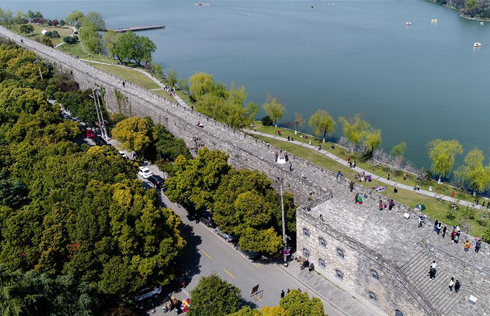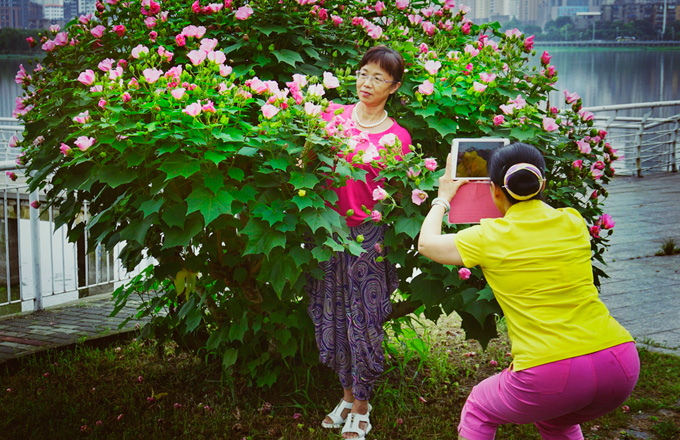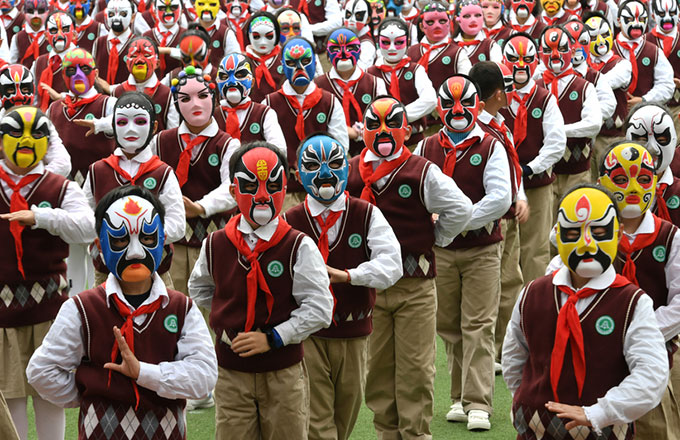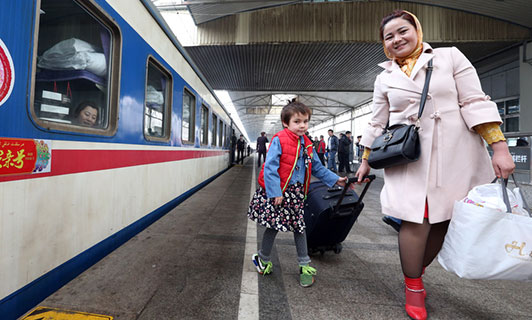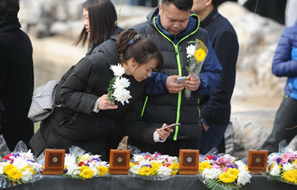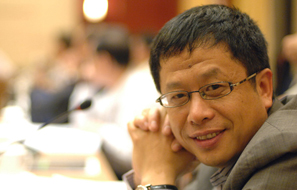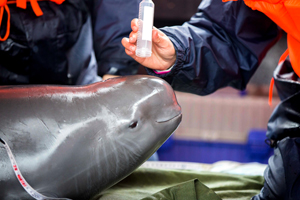Huizhou to bring polluted rivers back to life
The government in Huizhou, Guangdong province, has vowed to improve water quality of 15 rivers in the following few years to create a green and modern city.
More than 10 billion yuan ($1.5 billion) has been set aside for the projects, with two already completed, four underway and nine to start this year, according to authorities.
"We attach great importance to the problem of water pollution, as the rivers flow into the Dongjiang River," the main water supply for Hong Kong, said Chen Yongbing of the city's water resources bureau.
"Restoring the rivers will not only bring better water quality for the Dongjiang River, but also improve the lives of people in Huizhou," he added.
The first project was a cleanup of the 10-kilometer Jinshan River, which had become filled with garbage and emitted a foul smell, affecting the lives of nearby residents, Chen said.
"We spent only 10 months turning the polluted river into a fresh one," he said. "We also planted trees and built entertainment facilities along the river to make it an enjoyable place for people to visit."
Since the year 2004, the city has been treating its West Lake with a "traditional Chinese medicine-style therapy" to help improve the water quality.
The method aims to create a healthy ecological system by introducing suitable aquatic vegetation, animals and micro-organisms, explained Qi Dongsheng, general manager of Chiaki Albert Guangdong Environmental Services, which developed the technology.
"By adding them into the lake, an ecological food chain structure can be built. That creates an environment for water to achieve self-purification," Qi said.
Peng Junjie, head of the Huizhou Environmental Science Institute, said the therapy has already seen positive results. "Previously, the lake was yellow and dirty. Now, water transparency has been enhanced from 0.3 meters to 1.2 meters or more."
As part of the city's green push, since 2013, planning authorities have also blocked any development that failed to pass an environmental impact assessment.
"Any project that doesn't meet our environmental standards is rejected," said Ouyang Yunyan, a researcher with Huizhou's environmental protection bureau. "We always impose the strictest standards."
So far, more than 900 projects have been rejected due to a failure to meet environmental protection standards, she said. "More than 10 percent of projects applied have been rejected each year, which is high compared with other cities."
For example, Ouyang said, the city blocked a large-scale circuit board manufacturing project because it would cause water pollution, although it could provide "hundreds of thousands" of jobs.
An enterprise from the United States that planned to invest $200 million in a project was also turned down due to environmental concerns.
"The environmental protection department has a veto when deciding whether to introduce a project or not," Ouyang said. "Environmental protection is our top priority. We will not risk damaging it for economic benefit."
According to the Ministry of Environmental Protection, Huizhou ranked third of 74 key cities in terms of air quality last year, and was No 1 in the Pearl River Delta.




